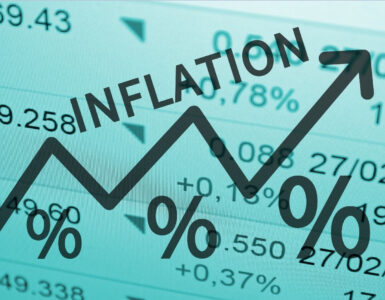Meta (ticker: FB) stock fell almost 23% in after-hours trading Wednesday and was almost 20% in the red in Thursday’s premarket. If it finishes more than 18.96% lower in Thursday’s regular-hours trading, it will be the worst one-day plunge for the stock in the company’s history.
All eyes on Wall Street will be on what plays out in the day ahead for the parent company of Facebook, Instagram, and WhatsApp, and not just because it could impact the wider stock market.
The blame for Meta’s plunge is fourth-quarter financial results, released after the bell Wednesday. While sales beat estimates, earnings were lower than what analysts had expected.
More troubling than weak earnings was dismal guidance. Meta expects revenue in the first quarter of 2022 to be between $27 billion and $29 billion, representing comparatively anemic annual growth of 3% to 11%, not what’s usually expected from the company.
In terms of the substance of the results, there were multiple facets that Wall Street soured on. These include higher costs linked to spending on the metaverse and headwinds to revenue from changes by Apple (AAPL) to its mobile advertising rules. But the biggest issue seems to be that people are spending less time on Meta’s platforms, which would hit revenue growth moving forward.
All this has helped destroy billions of dollars in market value and had knock-on effects for other stocks in the social media space.
Jim Reid, a strategist at Deutsche Bank, noted that Meta’s after-hours losses equate to an erasure of more than $200 billion in market capitalization — greater than the market value of Netflix (NFLX). “This gives a scale of damage done,” he said.
For Christopher Rossbach, the chief investment officer of Anglo-Swiss asset manager J. Stern & Co., it may look like a buying opportunity.
“Meta’s shares were attractively valued going into these numbers and any further setback makes it an even more compelling opportunity for long-term investors,” Rossbach said.
Before the earnings were released, Meta stock was already down almost 5% so far this year and nearly 35% lower from its record close last September.
“Despite a slowdown in user growth and higher costs that missed market expectations, Meta’s results for the fourth quarter delivered strong fundamental performance in revenues and profitability,” he added.
And while higher costs linked to investments in the metaverse may leave a bad taste in some investors’ mouths, Rossbach views it as a good thing.
“The massive investment that Meta is committing to the metaverse shows its ability and willingness to become a leader in this new sphere,” the fund manager said. “We expect that these investments will generate significant returns in the future.”
Moreover, Rossbach noted that part of the reason that Meta’s earnings look so bad is because they’re compared to a period of exceptional growth a year ago.
“Guidance for the first quarter highlighted the difficult comparisons to the period of exceptional growth during the pandemic,” he said.
Source: Barrons










